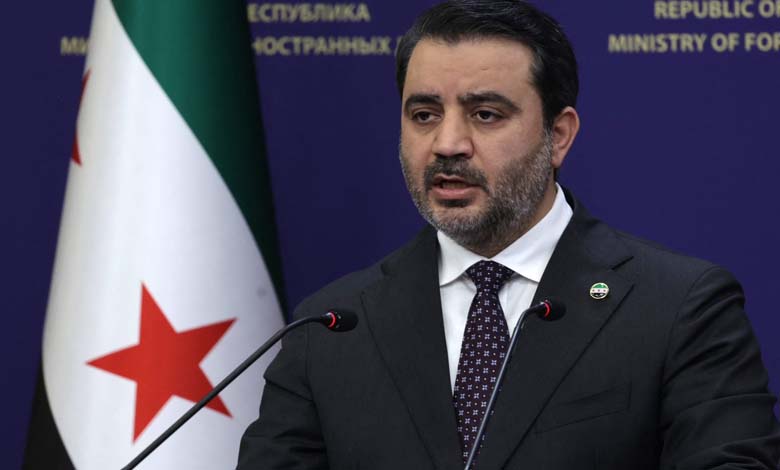Between Breaking Isolation and Renewing It: What Does the Lifting of Sanctions on Syria Really Mean? Experts Weigh In

In a dramatic shift of Western policy, Washington’s announcement to lift sanctions on Syria came as an unexpected move, once again casting the spotlight on a country battered by years of war, hunger, and siege.
-
Al-Assad Regime Remnants Seek to Return Syria to Chaos
-
Have Foreign Fighters Become a Burden on the New Syria?
Unsurprisingly, the decision stirred wide political and human rights debate, yet it also marks a pivotal moment in the West’s evolving approach to the changing Syrian landscape. While some view it as a victory for reason and people’s welfare, others consider it a strategic maneuver to curb Iranian and Russian influence in Damascus. The international community appears engaged in a quiet reassessment of years of ineffective isolation and economic pressure.
Does this development signal a genuine reopening toward Syrian recovery, or is it merely a tactical recalibration of power dynamics? And where do the Syrians themselves fit into this shifting scene? The answer lies not only in U.S. or European decision-making rooms, but also in Damascus’s ability to seize the moment, and in the international community’s readiness to build partnerships based on mutual interest, not preconditions.
-
ISIS Threatens al-Sharaa… Can the Group Still Operate in Syria?
-
Syrian Coast Events: Commitment to “Accountability” and Arrest of Suspects
A Rare Opportunity
Between an unexpected political move and growing recognition that sanctions have proven futile, a rare opportunity seems to be emerging for Syria and the region: the lifting of American and European economic restrictions.
U.S. President Donald Trump announced the end of economic sanctions on Syria, accompanied by a statement from Secretary of State Marco Rubio, who warned that Syria’s transitional authorities are just weeks away from collapse. Analysts saw this as an attempt to preserve the state without toppling the regime, and contain the influence of rival powers.
-
After 13 Years… Syria Regains Its Seat at the Organization of Islamic Cooperation
-
The Emir of the Turkestan Islamic Party Leads Fighters in Syria from Kabul… What’s the Story?
This shift is not just a change in tone, but a fundamental turning point from punitive logic to reconstruction logic. It is now clear that sanctions failed to dismantle the Syrian regime, instead devastating civil society and plunging the nation into poverty.
This move is not driven solely by humanitarian concerns; rather, it forms part of a broader strategic repositioning involving both the U.S. and Europe. As Tehran and Moscow remain key actors in Syria, the West now seems intent on reentering the arena through economic means.
-
The U.S. Administration and Syria: Caution and Skepticism Towards the New Regime Led by Ahmad Al-Sharaa
-
Syria Accuses Hezbollah of Carrying Out Attacks and Sponsoring Cross-Border Smuggling
The Failure of Sanctions
According to Syrian political analyst Ammar Waqaf, the shift represents a belated acknowledgment of the failure of sanctions, stressing that it was the Syrian people, not the regime, who bore the brunt of the blockade.
Waqaf stated that sanctions froze productive sectors, cut off access to education and energy, and eroded the middle class.
He called for a transition from short-term humanitarian aid to long-term investment in Syria’s economic and social infrastructure, emphasizing that Syria’s stability is a direct guarantee for European security, even before being a local issue.
-
Syrian Kurds Plan to Empty Jihadist Camps by the End of the Year
-
Al-Sharaa Pledges to Form an Inclusive Government in His First Speech to Syrians
From Coercion to Cooperation
Syrian writer Ahmad Sheikhou believes Europe now faces a moral test, as sanctions have become a strategic and ethical burden.
He argued: “Keeping sanctions in place no longer weakens the regime. Instead, it fragments Syrian society further, and gives Iran and Russia uncontested leverage.”
He went further, asserting that this moment tests the relationship between Europe and the Syrian people, not just the regime. Rebuilding trust, he suggests, requires abandoning the ‘carrot and stick’ approach and starting a gradual reform and economic engagement process.
-
Security Chaos Returns to Syrian Regions… Hayat Tahrir al-Cham Members Top the List of Accused
-
“The Passage is closed”: Syria Announces Interception of Weapons Bound for Hezbollah
But what guarantees exist that lifting sanctions won’t be exploited by Syrian authorities to restore the old system without concessions? This is where transitional justice becomes crucial, long demanded as a pillar of any meaningful negotiation.
While an official Syrian body is working on the issue, its influence remains limited without substantial international backing.
-
Has Maher al-Assad Returned to Syria? Controversy and Official Response
-
French and German Conditions for Supporting the New Syrian Leadership
Waqaf points out that Western demands—such as more inclusive governance, ending state propaganda, and initiating reforms—align in many ways with the aspirations of ordinary Syrians.
In conclusion, lifting the sanctions does not mean the crisis is over, but rather the beginning of a new phase. A test for all sides: Will Damascus reform the state? Will the West invest in genuine partnership? Or is this merely another chapter in the ongoing geopolitical chess game?












